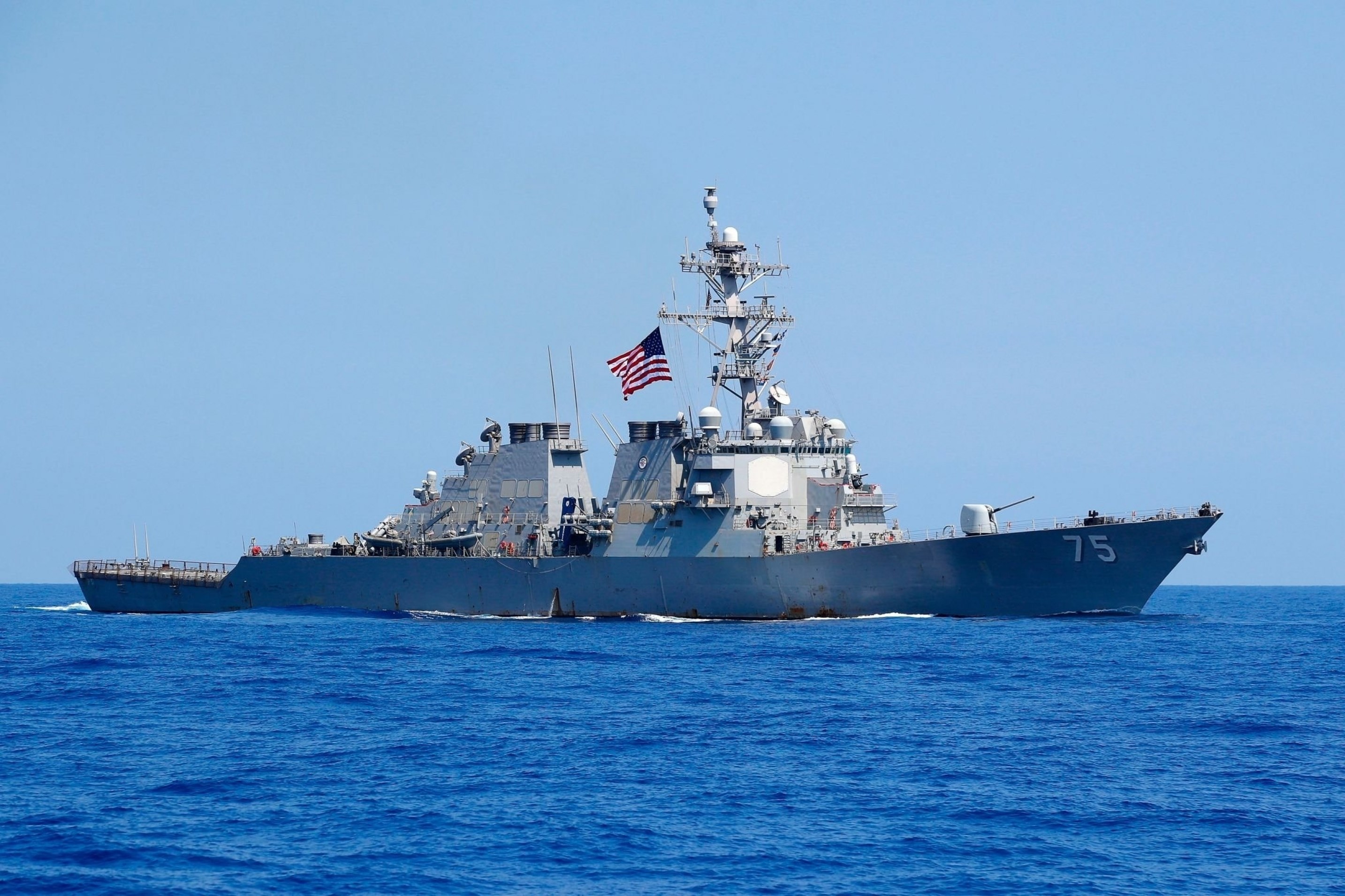US pursues militarization in Gulf; amps up aerial, naval forces
CENTCOM claims that the forces come to counter alleged Iranian "threats" in "some of the most important waterways."
-

US Navy USS Donald Cook, a guided missile destroyer, participates in an exercise with the Israeli occupation forces, French, and Greek Navies, Mediterranean Sea, August 7, 2019. (AFP)
The US is increasing its presence in the Middle East as tensions grow with Iran after several provocations by American vessels.
US Secretary of Defense Lloyd Austin ordered the deployment of an Amphibious Readiness Group/Marine Expeditionary Unit into US Central Command’s area of responsibility, a press release by CENTCOM said. Additional forces including Marines troops, F-35s, F-16s, and the guided-missile destroyer USS Thomas Hudner (DDG-116) will also be deployed to the Gulf.
Such a force would usually include 5,000 troops, assault ships, landing ships, and aircraft, Bloomberg said, citing the US Navy. CENTCOM claimed that Iran seized or attempted to seize around 20 internationally flagged merchant vessels in its "area of operations."
The US further alleged that it chased away vessels of the Iranian Navy attempting to seize two flagged merchant vessels in the Strait of Hormuz, however, Iran categorically denied these claims.
On its part, on July 7, Iran seized an oil tanker carrying 1 million gallons of looted oil from Iran. The Navy of the Islamic Revolution Guard Corps managed to stop the ship as they acted on a court order that called for the seizure of the ship that carried 900 tons of smuggled fuel,
Tehran said the US presence in the Gulf hinders its security objectives, as smugglers find routes of escape under US protection.
Read more: Why US oil firms are too afraid to unload seized Iranian oil: WSJ
Increased US military presence comes at a time when states in the region are moving away from Naval security cooperation with Washington.
Last June, the UAE announced its withdrawal from its participation in the US-led Middle East Maritime Security Alliance in the Gulf as a result of an assessment of its security ties.
Following the Gulf country's announcement, Iranian Navy Commander Rear Admiral Shahram Irani revealed that Iran's navy and regional countries, including Saudi Arabia, UAE, Qatar, Bahrain, India, and Iraq will establish a new naval coalition in the near future. He added then that the aforementioned countries have acknowledged that intra-regional cooperation is the key to regional security.
Irani highlighted that almost all of the countries in the North Indian Ocean region have agreed to stand by Iran and exert strained efforts to establish security with significant synergy.
Commenting on the admiral's statement, the US 5th Fleet and Combined Maritime Forces Spokesperson Commander Tim Hawkins considered that any such step "defies reason".
"It defies reason that Iran, the number one cause of regional instability, claims it wants to form a naval security alliance to protect the very waters it threatens," Hawkins said, as quoted by Breaking Defense.
Hawkins's comments could be described as hypocritical, as the US is infamous in the Middle East for carrying out invasions, supporting terror organizations, looting natural resources, toppling governments, and committing espionage, among other major infringements and crimes.
Read more: US deploys F-16s to Hormuz Strait, will not cede territories in Syria

 3 Min Read
3 Min Read








